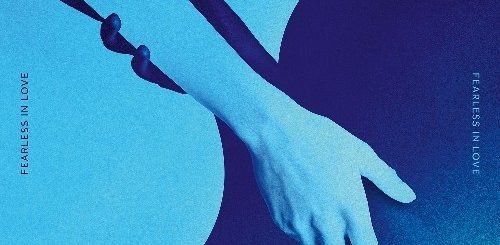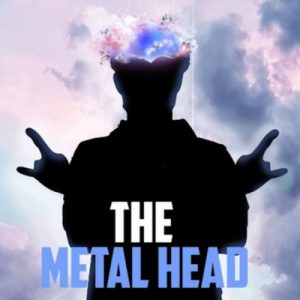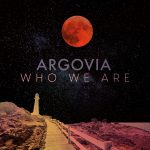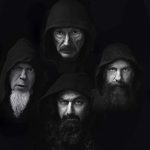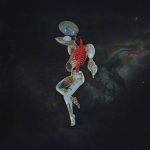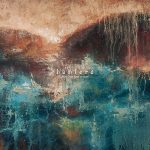Chapel of Disease: ‘Echoes of Light’ Review
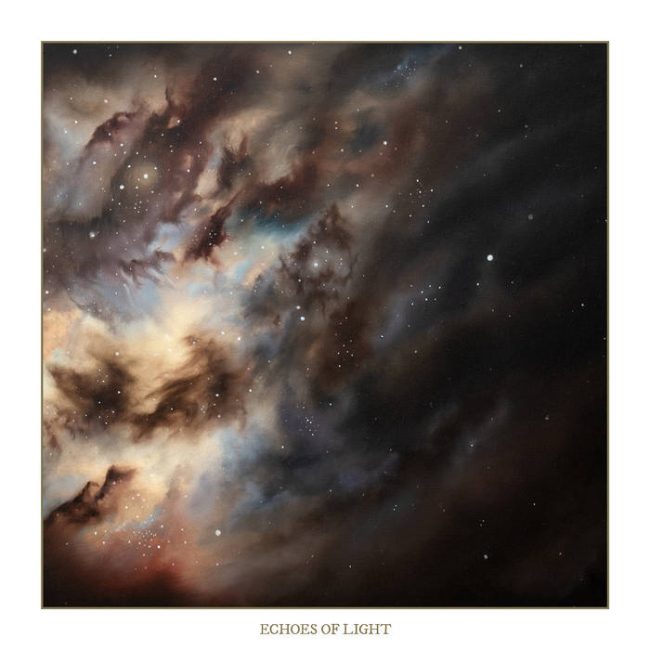
Any rock historian (and metal by extension) would tell you that its roots trace back to blues, folk and country music. Nostalgia for that era is a great thing and so many bands try to perfect the ‘old ways’ as it were, but few bands harken back to these styles while dragging the genre forward kicking and screaming in such a symbiotic manner. Enter German trio Chapel of Disease, a band that in effect takes elements from the past and elements from the present to create something altogether fascinating. Six years ago the band released the mouthful of an album title that is …And As We Have Seen the Storm, We Have Embraced the Eye, an album that received considerable attention within underground extreme metal scenes with its disparate, yet cohesive songwriting choices.
With their fourth LP Echoes of Light, the band again seeks to completely forgo any perceptions of stylistic boundaries. Genre fusion of throwback and modern styles has happened before, one of my favourite examples being fellow Ván Records alumni Slaegt, but this takes that thesis in a different direction. The main driver in these efforts is vocalist and guitarist Laurent Teubl, and his influence makes itself plain with the extended soloing, the meandering song structures, and surprising amount of jammier sections found throughout. The sound is more akin to “death metal Dire Straits” than anything else – think Sultans of Swing, but he’s swinging an axe around repeatedly, leaving ruin in his wake.
Opener and title track Echoes of Light is one of the more pronounced examples of that particular stylistic fusion in place – the track is extremely 70s in its introductory riffing, with an almost funky segment leading into a driving riff reminiscent of peak Blue Öyster Cult, before the introduction of harsh vocals. After a while, the tremolo riffing and blast beats set in. We’re black metal now, if only for a moment. The vocals return, with lead guitar embellishments adding to affairs, and the song reaches its climax.
The production on this album is perfect for what it’s trying to sell – everything is in its right place, nothing is too prominent or not prominent enough. Little additions like the use of synthesiser on Shallow Nights are perfectly layered onto the more traditional instrumentation found throughout. The drum sound is perfect for the more vintage style being evoked, and the lead guitar tones are blisteringly nostalgic.
Said lead guitar makes itself known throughout, with a key display of it to be found in A Death Though No Loss, which really does wear the Mark Knopfler influence on its sleeve. This track is a highlight, with the band in full flow through its minor odyssey of a composition. The leads are the most prominent element of the record, with parting piece An Ode to the Conqueror effectively throwing them into full throttle with the band in full flow behind them. While they’re not displayed quite as prominently as the sheer amount of guitar leads and solos, the bass playing of Christian Krieger and drumming of David Dankert are crucial to the feel and pace of the record. A highlight in terms of the rhythm section is track Selenophile, with its swinging upbeat drum patterns ripped right out of 1987 and a low end that pops up in satisfying ways here and there.
My main point of criticism is that Teubl’s vocal approach in both harshes and cleans is relatively simplistic and one-note, but for me personally, instrumentally the album has achieved more than enough to make up for this. On a wider note the record feels a little different to their 2018 album insofar as it’s less direct, dreamier, and less of an innate guitar-orientation in its composition (though the leads are still a huge component), so if you’re looking for something more riff-focused, then …And As We Have Seen the Storm may be more geared towards you’re looking for.
Having said that: If what you’re wanting is soundscapes, vibes and also lead guitar all over the shop, Echoes of Light is very much for you. In this record, Chapel of Disease have set out to try and overcome genre convention and comparison to contemporaries and I would argue that they’ve succeeded in that goal – this really doesn’t sound like many of the thousands of extreme metal bands out there going out and also being excellent. By instead harkening back to the classics but marrying them with the more “modern” sophistications of blast beats and tremolo riffing, Echoes of Light feels like a seamless stylistic blend.



